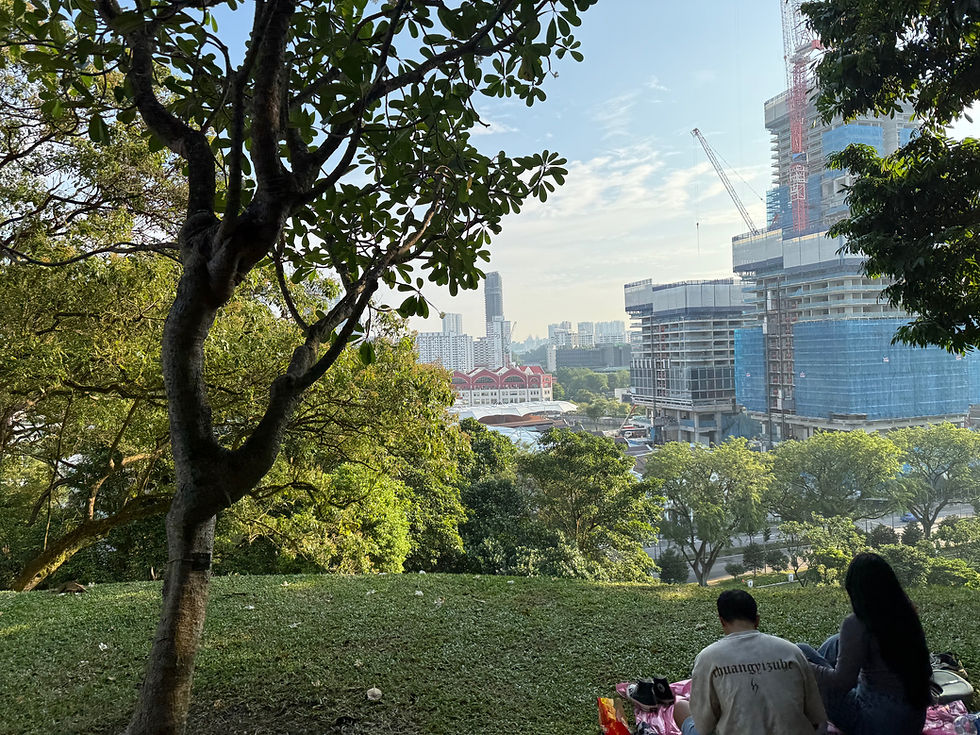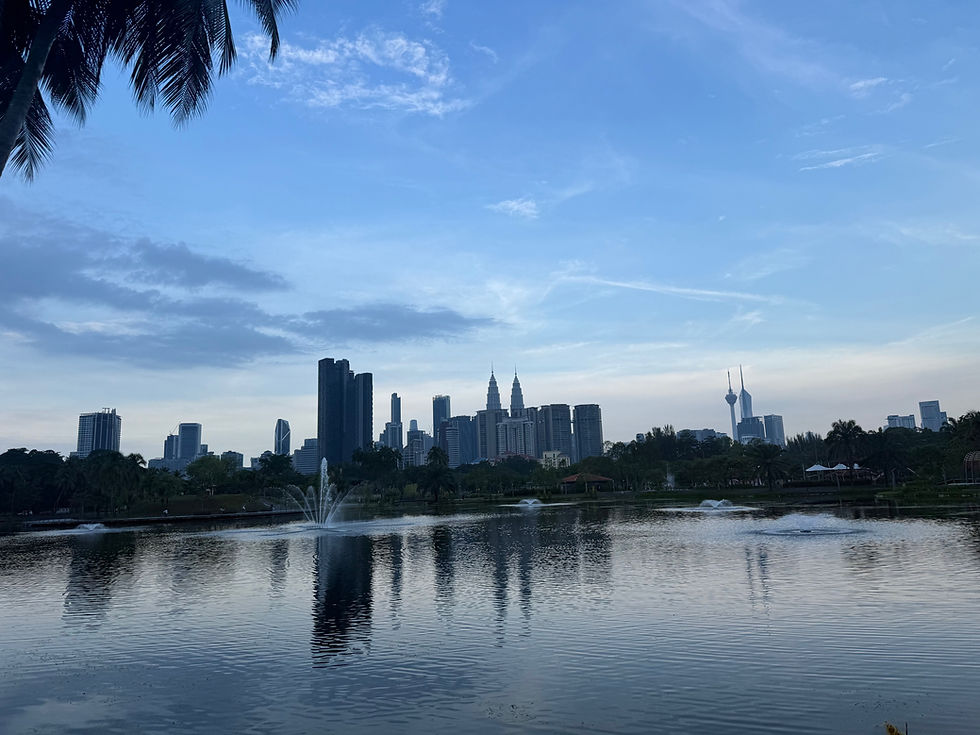On Serbia: Vucic’s Bismarckian Foreign Policy Pays Dividends in the Quest For Vaccinations
- Nikola Ranick
- Mar 6, 2021
- 5 min read

Anyone charting the worldwide vaccinations (still largely active in only the most affluent countries) is well aware of the aggravatingly slow roll out occurring. Nonetheless, even if the absolute terms of vaccine achievement are lackluster, there are always winners on a relative scale. In that regard, Israel, the UAE, UK, and, surprisingly for most in it, the US rank the highest in that order, a list that has remained relatively stable over the last couple months.
When it comes to mainland Europe, these same vaccine voyeurs are surely entranced by the EU’s dramatic sparring with AstraZeneca over its glaring failure to supply the previously-promised number of doses while still funneling others produced in the EU to the UK. Alas, the previous unity and collaborative effort by the European Commission looks to have fallen flat, as the EU drags its feet and the most successfully vaccinated countries in the bloc are those that made separate arrangement. Most strikingly (and perhaps humiliatingly?), it is a country itself entirely absent from the common market that boasts the highest proportion per head: Serbia.
For the little (and ever-controversial) Balkan nation of nearly 7 million, this is a much needed win for both political elites seeking international legitimacy and domestic approval after a strict and strongly-protested lock-down period, as well as for the general public, themselves roiled by the Balkan Region’s most severe brain drain and civil liberty ambiguity post-shutdown. But how did one of the poorer nations in Eastern Europe get here?A smaller population coupled with a limited geographic radius alongside a largely central state are themselves easy explanations. But this author posits it is also the Serbian Government, as led by its current President and longtime political puppet-master, Alexander Vucic, who have successfully jockeyed not just European and Russia Influence, but American and Chinese pressure as well. With such profound juggling leading to kickbacks, concessions, and other favorable arrangements, it is no wonder the country has been able to swiftly claim a vaccine surplus over others in the area
Most EU commentators have long remarked on Alexander Vucic’s profound skill in weaving international relations in a cross-influential manner that swings back and forth but never fully shows its hand in favor of one side. In terms of its immediate geographical power struggle, Serbia has always played nice with big brother Russia, itself nearly synchronous by religion, history, and political culture. Its free trade agreement to the Eurasian Economic Union, a frail, for-show alternative to the EU, proves its commitment to a declining but still assertive Russia. Yet simultaneously, Vucic has pushed slowly for further integration into mainland Europe with eventual hopes of formal EU accession talks. This preference is despite abundant resentment over the former Yugoslavia’s breakup and subsequent bombings that still manifest themselves in the ongoing Kosovo Sovereignty Question (a contested region that is 90% plus ethnically Albanian and has been recognized as an autonomous nation by numerous powers, yet still denied by the likes of Serbia and Russia). Indeed, Vucic’s rather op-ed several years about Serbs needing to “get real’ on Kosovo is both a prime example of political realism and a tit-for-tat style of negotiation the administration has played, already making overtures to the Biden White House. Indeed, Serbia’s former (and wealthier) statesmen in Croatia and Slovenia have shown, after all, that economic and political prosperity still lies Westward.
Vucic’s newer foreign policy performances have come in the form of American and Chinese counterweights. Strongman-esque Vucic was able to make a good impression during the tumultuous Trump Presidency, gaining symbolic and logistical wins against Kosovo even if primarily in name only. Considering the historical role of America in the Bosnian and Kosovar Conflict, this is a political 180 similar to the US and its relationship with Vietnam. And still simultaneously, Serbia was and is still benefiting from enhanced Chinese economic and security relations (visas have not been required since 2017), through cameras and other surveillance software used in response to recent lock-down protests-and eerily familiar to China’s own crackdown on Hong Kong.

Alas, it is likely the previously mentioned illiberalism on a domestic front that makes the government so apt at international negotiation. Vucic himself is strongly autocratic in nature (a former propaganda minister for Milosevic, no less) and can tilt the political playing field in his direction despite domestic opposition. With an overall ironclad grip on Serbian society, the government frequently bounces back and forth in loyalties that create mild foreign policy about-faces but pay dividends in actual relations. In regards to specific vaccinations, the country again tethered the tightrope by signing deals with multiple countries and spheres of influence as opposed to purely sticking to one. As the country’s Prime Minister, Ana Brnabic, mused:"Whether [vaccines] come from China, the US or EU - we don't care as long as they're safe and we get them as soon as possible," (BBC).
This author sees Vucic’s strategy as reminiscent of early Germany’s foreign policy wizard, Otto von Bismark. He himself was seemingly the inventor of alliance juggling, frequently switching back and forth in playing enemy states against each other. This created a tapestry of interconnection and intrigue that only benefited Germany in its outcomes. Indeed, Bismarck’s positional downgrade and eventual death itself began to spell the end to the early glory days of imperial Germany. Serbia obviously does not maintain the geographical significance nor the demographic importance of Deutschland, but if anything, that makes Vucic’s skillful geopolitical dance even more impressive.
Alas, it is this positive comparison that also spells its negatives, for international negotiations between Serbia and others are likely to become even more tumultuous. Continued talks or even actual admittance with the EU could spur threats of retribution from a desperate Russia and economically manipulative China. And Vucic’s eventual departure from the scene will not only stir geopolitical decline but perhaps ironically, doom Serbia's civil liberties even more. It is, after all, the more rightward elements of Serbian society that are naturally dominant, hungry for lost lands and a prior age of prestige, easily re-inflamed in times of nationalist fervor or economic desperation (a la '90s and early 2000's). Vucic’s hold, for all its disadvantages, has overall preserved the most centrist social and economic policy that the nation could likely ever muster.

But so what? Vucic is not going anywhere soon and the mid ‘00s symbolized the Serbian people’s remarkable ability for (pressurized) change. This author recommends juxtaposing the newly elected head of the dominant Serbian Orthodox Church alongside the enduring run of a competent lesbian Prime Minister (in an incredibly homophobic country, mind you) as proof that the future for Serbia is anything but defined. Just as it juggles competing superpowers’ influences, so too could it domestically in assuming a new or at least evolved political and/or social culture. After all, these Vucic era negotiations are proof not of what Serbia may be, but what it could be as well.




Comments